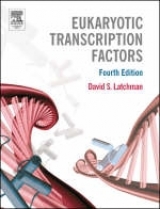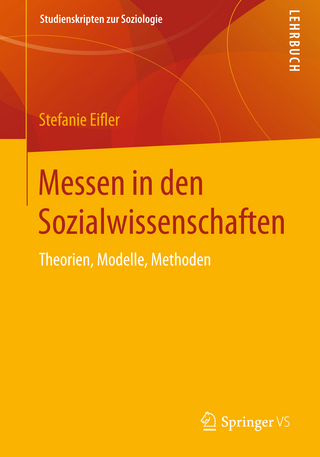
Eukaryotic Transcription Factors
Academic Press Inc (Verlag)
978-0-12-437176-7 (ISBN)
- Titel erscheint in neuer Auflage
- Artikel merken
Familiarity with the mechanisms of eukaryotic gene regulation is now essential for scientists and students in both clinical and basic disciplines. However, the vast array of transcription factors, which are central to such regulation, can prove daunting to students and newcomers to this fascinating field of molecular genetics. The Third Edition of Eukaryotic Transcription Factors provides the reader with a clear and concise understanding not only of transcription factors, but also of their vital role in the regulation of transcription in different cell types during development and in disease.Revised and completely up-to-date, the Third Edition of Eukaryotic Transcription Factors has been extensively rewritten to reflect the rapid advances in the field. These include the emerging roles of specific co-activator molecules such as CBP in the action of a number of different transcription factors emphasizing particularly their ability to modulate chromatin structure. New sections cover current methods for determining DNA binding specificity, regulation by protein degradation and processing, Pax family transcription factors, and novel anti-oncogenic transcription factors, as well as a discussion of transcription factors in human diseases. A special new color section illustrates the various aspects of transcription factor structure.
David S. Latchman graduated with a BA (First Class Honours) in Natural Sciences from Cambridge University and subsequently obtained a PhD in Genetics from Cambridge University. Following a period of post-doctoral research at Imperial College London, he was appointed to a lectureship at University College London in 1984. Subsequent appointments at UCL included Director of the Medical Molecular Biology Unit (1988), Professor of Molecular Pathology and Head of the Department of Molecular Pathology (1991), Director of the Windeyer Institute of Medical Sciences (1996) and in 1999, Dean of the Institute of Child Health and Professor of Human Genetics. At the beginning of 2003, he took up a new appointment as Master of Birkbeck, University of London, leading this multi-faculty College comprising over 1,000 staff and 16,000 students studying at levels from short courses to PhDs. He continues to retain an active research laboratory at the Institute of Child Health, UCL and in recognition of this he is now Professor of Genetics at Birkbeck and UCL. Since he set up his own laboratory in 1984, Professor Latchmans interests have focused particularly on the regulation of gene expression in mammalian cells by specific transcription factors. Initial studies, involved the eukaryotic virus Herpes Simplex Virus (HSV) and were aimed at elucidating why this virus was able to replicate in epithelial cells, whilst establishing silent latent infections in neuronal cells. The identification of a cellular POU family transcription factor, Oct-2, which was expressed in neuronal cells and blocked the virus-lytic cycle, led to an interest in the role of specific POU family transcription factors in regulating cellular as well as viral gene expression in neuronal cells. As well as studies of the role of Oct-2, these investigations resulted in the characterisation of a small sub-family of POU family transcription factors which comprised three members: Brn-3a, Brn-3b and Brn-3c. In particular, the key role of Brn-3a in promoting neuronal differentiation and enhancing the survival of neuronal cells was defined by Professor Latchmans laboratory and has important therapeutic potential for the treatment of human neurodegenerative diseases involving losses of neuronal cells. More recently, Professor Latchmans group has also studied the role of specific transcription factors in the heart and in particular, in its response to damage caused by ischaemia, as in a heart attack. They have demonstrated that a specific transcription factor STAT-1 becomes activated during ischaemia and induces a number of genes which enhance the programmed cell death of cardiac cells, resulting in the loss of these irreplaceable cells. Thus, inhibition of STAT-1 represents a potential therapeutic mechanism for decreasing the damage caused by interruption of blood flow to the heart. On the basis of his scientific research, Professor Latchman was awarded a DSc by London University in 1994 and was appointed a Fellow of the Royal College of Pathologists (FRCPath) in 1999. He serves on a number of Committees, including the Department of Health, Genetics and Insurance Committee, the National Biological Standards Board and its Scientific Policy Advisory Committee, the Health Protection Agency and the Research Strategy Committee of the Higher Education Funding Council for England.
DNA Sequences, Transcription Factors, and Chromatin Structure.
Methods for Studying Transcription Factors.
Transcription Factors and Constitutive Transcription.
Transcription Factors and Inducible Gene Expression.
Transcription Factors and Cell Type-Specific Transcription.
Transcription Factors and Developmentally Regulated Gene Expression.
Transcription Factors and Human Disease.
DNA Binding by Transcription Factors.
Activation and Repression of Gene Expression by Transcription Factors.
What Regulates the Regulators?
Conclusions and Future Prospects.
Chapter References.
Index.
| Erscheint lt. Verlag | 13.10.1998 |
|---|---|
| Verlagsort | San Diego |
| Sprache | englisch |
| Maße | 152 x 229 mm |
| Gewicht | 770 g |
| Themenwelt | Naturwissenschaften ► Biologie ► Genetik / Molekularbiologie |
| Naturwissenschaften ► Biologie ► Zellbiologie | |
| ISBN-10 | 0-12-437176-0 / 0124371760 |
| ISBN-13 | 978-0-12-437176-7 / 9780124371767 |
| Zustand | Neuware |
| Haben Sie eine Frage zum Produkt? |
aus dem Bereich



